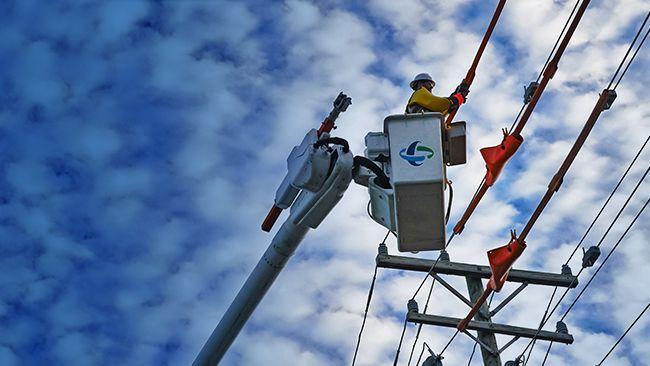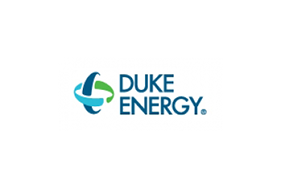Duke Energy Progress Receives Approval for New Rates in North Carolina, Implements New Programs To Help Customers
Published 10-19-23
Submitted by Duke Energy

- Rates include upgrades to make the grid more resilient and shorten the duration of outages
- New programs will give customers more control over energy use, support low-income customers
- Approval includes performance incentive mechanisms to hold the utility accountable for reliability, encourage renewables and reduce peak system loads
CHARLOTTE, N.C., October 19, 2023 /CSRwire/ - Duke Energy Progress will implement new rates for North Carolina customers on Oct. 1 as approved by the North Carolina Utilities Commission (NCUC).
Rates for North Carolina customers will remain below the national average, even after Duke Energy Progress completes approximately $6.3 billion in upgrades to make the electric grid more resistant to outages and enable faster power restoration.
And for the first time, the NCUC approval covers multiyear rates, along with incentives and penalties to hold the utility accountable for reliability and other performance metrics.
“We’ve made major infrastructure enhancements in recent years to meet our customers’ needs and expectations, and this order will enable even more improvement while limiting annual rate increases and giving customers more cost certainty,” said Kendal Bowman, Duke Energy’s North Carolina president.
Rate changes start Oct. 1
After extensive evaluation since the rate review was requested last October, along with constructive settlements with the NCUC Public Staff and other parties, the NCUC approved a net increase in retail revenues in year one of about $234 million (5.8%), followed by $126 million (3.2%) in year two and $138 million (3.4%) in year three.
Customer bills already reflect an interim rate adjustment implemented June 1. Accounting for that, beginning Oct. 1, 2023, the change from current rates for a typical residential customer using 1,000 kilowatt-hours (kWh) per month will be an increase of $8.04, from $144.12 to $152.16 per month, followed by a $4.67 increase on Oct. 1, 2024, and a $5.15 increase on Oct. 1, 2025, for a total of $161.98 by late 2025.
According to the Edison Electric Institute, the national monthly average for typical residential customers was $171.67 as of Jan. 1, 2023, before other utilities go through their own rate adjustments.
The full NCUC rate review order can be found here. Duke Energy Progress serves about 1.5 million customers in central and eastern North Carolina and in the Asheville region.
Help for low-income customers
The NCUC ordered Duke Energy Progress to establish a Customer Assistance Program (CAP) that will reduce bills for the utility’s most vulnerable customers through a $42 monthly credit for 12 months. Customers helped by the Low-Income Energy Assistance Program (LIEAP) or the Crisis Intervention Program (CIP) – federally funded initiatives for those at or below 130% and 150% of the poverty level, respectively – will be automatically enrolled in CAP once the program launches in January in partnership with the North Carolina Department of Health and Human Services.
Duke Energy will also refer CAP customers to weatherization and energy efficiency services that can help provide long-term solutions to reduce energy usage. As part of a settlement in the rate cases for both Duke Energy Progress and Duke Energy Carolinas (still subject to NCUC approval), Duke Energy shareholders will contribute $10 million for health and safety repairs that would otherwise prevent low-income customers from qualifying for weatherization and other energy efficiency improvements. Duke Energy shareholders are contributing an additional $6 million to the Share the Light Fund in support of North Carolina customers.
New options for all customers
For all customers, Duke Energy Progress has also established new time-of-use rate options and energy efficiency programs to help lower their costs and reduce energy use:
- Time-of-Use rates incentivize customers to shift electricity use to periods of low energy demand. Simple examples include running a dishwasher overnight or doing laundry on weekends; options are available for commercial and industrial customers as well. More detail can be found at duke-energy.com/NewRatesNC.
- A Tariff on Bill program will enable residential customers – owners and renters – to pay for energy efficiency upgrades through their Duke Energy bill. The program will incentivize customers to replace inefficient electric HVAC systems or insulation in a manner that ensures their annual savings are greater than the monthly cost of the upgrades – improving their service while lowering their bill. The program is expected to launch in first quarter 2024.
“Our goal with all of these programs is to help offset the rate increase as much as possible by giving customers more control over their energy use,” said Bowman. “Each of these programs is designed to reduce costs across the entire system, benefiting all customers.”
Holding the utility accountable for reliability, renewables goals
Another first-time aspect of this rate approval is the implementation of performance incentive mechanisms (PIMs). First allowed by North Carolina’s clean energy legislation (HB951), PIMs advance state policy goals through financial incentives and penalties that encourage utility performance in areas of shared interest with customers.
Following settlements with various participants in the rate review process, the NCUC approved three PIMs with annual incentives that grow up to $10 million in potential rewards as well as $10 million in potential penalties for Duke Energy Progress across three areas:
- Reliability – holds the utility accountable to maintain expected levels of reliability through graduated penalties that would be distributed to customers if reliability dips below target levels.
- Renewables Integration and Encouragement – encourages adoption of clean energy resources across three categories:
- DER Integration – advances net energy metering (NEM) distributed energy resources (DERs), which allow customers to access zero-emissions generation – such as rooftop solar – at their homes and businesses, reducing their electricity consumption from the grid.
- Large Customer Renewable Program Encouragement – supports large commercial and industrial customers, educational institutions and local governments that have clean energy goals and want access to renewable energy.
- Utility Scale Interconnection – incentivizes solar and solar-plus-storage interconnections above the estimated annual amounts in Duke Energy’s Carbon Plan.
- DER Integration – advances net energy metering (NEM) distributed energy resources (DERs), which allow customers to access zero-emissions generation – such as rooftop solar – at their homes and businesses, reducing their electricity consumption from the grid.
- Time-Differentiated and Dynamic Rate Enrollment – encourages the utility to create and gain approval of innovative rate designs and increase customer participation in existing rates that are designed to reduce system peak load.
A new page will be added to Duke Energy’s website later this year to allow monitoring of these PIMs as well as other tracking metrics related to customer service, reliability, electric vehicle integration, and residential customer disconnections and bill averages in relation to federal poverty levels.
Duke Energy Progress
Duke Energy Progress, a subsidiary of Duke Energy, owns 12,500 megawatts of energy capacity, supplying electricity to 1.7 million residential, commercial, and industrial customers across a 29,000-square-mile service area in North Carolina and South Carolina.
Duke Energy (NYSE: DUK), a Fortune 150 company headquartered in Charlotte, N.C., is one of America’s largest energy holding companies. Its electric utilities serve 8.2 million customers in North Carolina, South Carolina, Florida, Indiana, Ohio and Kentucky, and collectively own 50,000 megawatts of energy capacity. Its natural gas unit serves 1.6 million customers in North Carolina, South Carolina, Tennessee, Ohio and Kentucky. The company employs 27,600 people.
Duke Energy is executing an aggressive clean energy transition to achieve its goals of net-zero methane emissions from its natural gas business by 2030 and net-zero carbon emissions from electricity generation by 2050. The company has interim carbon emission targets of at least 50% reduction from electric generation by 2030, 50% for Scope 2 and certain Scope 3 upstream and downstream emissions by 2035, and 80% from electric generation by 2040. In addition, the company is investing in major electric grid enhancements, energy storage, and exploring zero-emission power generation technologies such as hydrogen and advanced nuclear.
Duke Energy was named to Fortune’s 2023 “World’s Most Admired Companies” list and Forbes’ “World’s Best Employers” list. More information is available at duke-energy.com. The Duke Energy News Center contains news releases, fact sheets, photos and videos. Duke Energy’s illumination features stories about people, innovations, community topics and environmental issues. Follow Duke Energy on Twitter, LinkedIn, Instagram and Facebook.
Contact: Bill Norton
24-hour media line: 800.559.3853
View original content here.

Duke Energy
Duke Energy
Duke Energy (NYSE: DUK), a Fortune 150 company headquartered in Charlotte, N.C., is one of America’s largest energy holding companies. The company’s electric utilities serve 8.4 million customers in North Carolina, South Carolina, Florida, Indiana, Ohio and Kentucky, and collectively own 54,800 megawatts of energy capacity. Its natural gas utilities serve 1.7 million customers in North Carolina, South Carolina, Tennessee, Ohio and Kentucky.
Duke Energy is executing an ambitious energy transition, keeping customer reliability and value at the forefront as it builds a smarter energy future. The company is investing in major electric grid upgrades and cleaner generation, including natural gas, nuclear, renewables and energy storage.
More information is available at duke-energy.com and the Duke Energy News Center. Follow Duke Energy on X, LinkedIn, Instagram and Facebook, and visit illumination for stories about the people and innovations powering our energy transition.
More from Duke Energy

